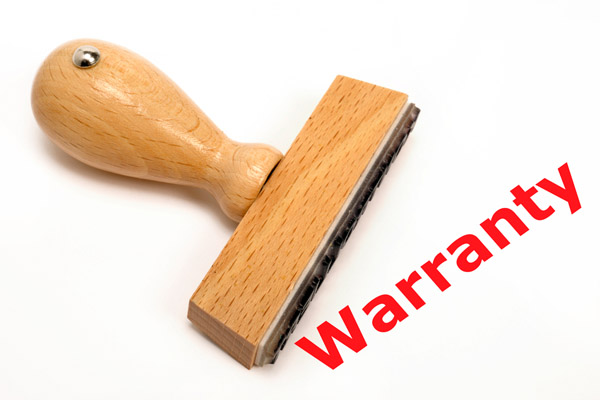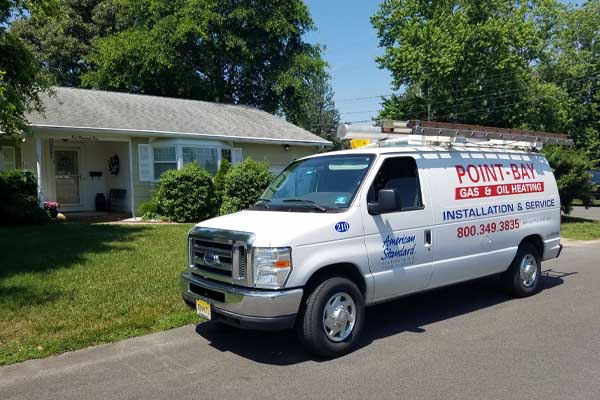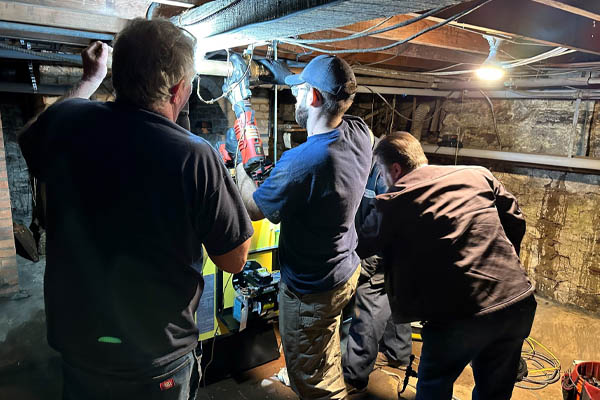Important Features of a Solid HVAC Warranty

When choosing an HVAC system, it’s crucial to consider the warranty offered by the manufacturer. This HVAC warranty coverage is essentially a promise that safeguards you against any faults or problems with the equipment for a set duration. The significance of a robust HVAC warranty lies in the assurance and financial protection it delivers, particularly if unforeseen difficulties arise with your system.
With a dependable warranty, you can rest easy knowing your heating and cooling units are protected, minimizing potential expenses related to repairs or replacements. This ensures a consistently comfortable home environment. Recognizing the value of extensive HVAC warranty coverage helps homeowners select new heating or air conditioning units with confidence and complete information.
Understanding Different Types of HVAC Warranty Coverage
Contents
- Understanding Different Types of HVAC Warranty Coverage
- Essential Elements of a Solid HVAC Warranty
- Actions That Could Void an HVAC Warranty
- Additional Considerations in HVAC Warranties
- Steps to Claim an HVAC Warranty
- Involvement of HVAC Professionals in Warranty Maintenance
- Call Point Bay Fuel For All Your HVAC Requirements
Grasping various HVAC warranty coverage is essential for homeowners in the market for a new HVAC system. It’s essential to meticulously examine the specifics of the coverage, the length of the warranty, and the conditions attached to each type. This careful review empowers customers to make well-informed choices, ensuring the protection of their investment and a hassle-free journey with their HVAC equipment.
Manufacturer’s Heating & Cooling Warranty

This is provided directly by the HVAC equipment maker. It is a standard inclusion with the purchase of any new system. This warranty covers any defects in materials or workmanship for a defined period, typically from one to ten years. Should the equipment experience any malfunctions attributable to manufacturing errors within this period, the manufacturer commits to repairing or replacing the faulty components at no additional expense to the customer. Understanding the scope and time limit of the Manufacturer’s Warranty is a key aspect for homeowners to consider when investing in a new HVAC system.
Dealer’s Warranty
This is a specific guarantee provided by the dealer or installer of the HVAC system. It focuses on the installation process and the workmanship quality during the system setup. In case of installation-related issues, the dealer is responsible for rectifying these problems swiftly and effectively. For homeowners, it’s critical to understand the dealer’s warranty terms thoroughly. This includes knowing the length of the coverage and precisely what aspects of the installation are covered under this warranty.
Extended Warranty

This optional supplement extends the standard Manufacturer’s Warranty, offering broader and longer coverage for added peace of mind. Extended Warranties differ in duration, coverage scope, and addressed issues, providing extra protection against unexpected malfunctions and repair costs. Customers should carefully review the terms and financial aspects before deciding.
Labor Warranty
This represents a distinct form of coverage that addresses the labor costs associated with any repairs or replacements during the warranty period. Unlike the Manufacturer’s Warranty, which generally covers component costs, the Labor Warranty ensures that the customer is not burdened with labor charges in cases where the system requires servicing or replacement. Comprehending the specifics of the Labor Warranty, including its duration and the full extent of coverage, is vital. This way, you can evaluate the overall protection provided and estimate any potential expenses that might be incurred.
Essential Elements of a Solid HVAC Warranty

Extensive Protection
An effective HVAC warranty must provide extensive protection, ensuring all critical elements of the system are covered. Key aspects include:
- Whole System Protection: Coverage extends to indoor and outdoor units, safeguarding the entire system.
- Major Component Coverage: Essential parts like the compressor, condenser coil, blower motor, and other vital components are included.
- Labor and Installation Inclusion: In the event of a malfunction of any covered part, the warranty covers the replacement part and the labor costs for its installation.
Transferable Warranty
A standout attribute of a solid HVAC warranty is its transferability. If a homeowner opts to sell their property, the existing warranty coverage can be passed on to the new owner. The ability to transfer the warranty adds significant value to the home and is an appealing advantage for prospective buyers.
Appropriate Coverage Duration
When evaluating an HVAC warranty, the length of coverage is a key factor. A reliable HVAC warranty should provide a duration of coverage that is in line with the system’s expected lifespan. Manufacturer’s Warranties often span from one to ten years, with options for extended warranties that prolong coverage beyond the standard period. Homeowners should select a warranty whose duration meets their specific requirements and offers sufficient protection over time.
Fair and Transparent Terms
A trustworthy HVAC warranty should be devoid of unreasonable limitations or exclusions that might deny coverage for commonplace issues. The warranty’s terms and conditions should be clear and transparent to prevent potential misunderstandings. Ensure that the warranty does not omit coverage for certain types of breakdowns or damages that commonly arise during the regular operation of the system.
Clear Replacement Policies
An effective HVAC warranty must include well-defined guidelines for replacing parts or the entire system. The warranty should clearly outline the conditions under which replacements are permissible, the procedure for submitting claims, and the anticipated timeframe for the completion of replacements. This clarity helps customers comprehend their entitlements and the process they should expect when making a warranty claim.
Actions That Could Void an HVAC Warranty

- Improper HVAC System Installation: Non-compliant installations with manufacturer guidelines, especially those not performed by a licensed professional, can cause performance issues and potentially void the warranty.
- Regular HVAC Maintenance Negligence: Ignoring regular maintenance like tune-ups and filter changes, as required by most warranties, can lead to problems not covered under the warranty. Adhering to maintenance guidelines is crucial for warranty validity.
- Using Non-OEM Parts: Utilizing non-original parts in repairs or replacements can void the warranty, as these may not be compatible with the system and lead to damage.
- Neglecting Warranty Registration: Failure to register the warranty within the required timeframe following installation can result in warranty nullification. Timely registration is important for warranty validation.
- Unauthorized HVAC Repairs: Repairs done by unlicensed or unauthorized technicians, or DIY repairs, can void the warranty and potentially cause further system damage.
Additional Considerations in HVAC Warranties

Homeowners can select a warranty that best suits their specific needs, reassuring them and safeguarding their investment in their HVAC system. When choosing a warranty, it’s important to consider several crucial aspects:
- Provider Reputation: Research the warranty provider’s history and customer feedback for reliability, customer service quality, and claim handling efficiency. A reputable provider ensures effective coverage fulfillment for system issues.
- Registration Requirements: Some warranties require system registration with the manufacturer or provider within a specific time after installation. Missing this step can void the warranty, so adhere to these requirements for valid coverage.
- Maintenance and Service Obligations: Regular professional maintenance is often a condition for warranty validity. Yearly check-ups by certified technicians are necessary, and neglecting this can void the warranty and leave homeowners responsible for repairs.
- Cost vs. Coverage Consideration: Evaluate the warranty’s cost against the coverage it offers. Higher costs might yield more extensive coverage, while affordable options may have less comprehensive protection.
Steps to Claim an HVAC Warranty
Claiming an HVAC warranty involves a clear and straightforward process. Homeowners should adhere to these essential steps to ensure a smooth experience:
- Understanding the Claim Procedure: It’s important to know the exact process for filing a warranty claim as detailed in the warranty documents. This involves acquainting yourself with the necessary actions in case of a system malfunction or failure. Different warranties might have unique protocols and prerequisites, which could include contacting the warranty provider, contacting the HVAC manufacturer’s customer support, completing a claim form, or detailing the nature of the problem.
- Maintaining Essential Records: Having all pertinent documentation on hand is crucial for backing up a warranty claim. Key documents include the warranty certificate, the original purchase receipt, records of installation, and any correspondence with HVAC technicians or contractors. These documents prove your system’s qualification for warranty coverage and can significantly expedite the claim process.
- Documenting Routine Maintenance: Regular maintenance by a certified HVAC technician is usually mandatory to uphold the validity of the warranty. Homeowners should keep a detailed record of all such maintenance and servicing activities. This record is crucial as it shows that the system has been properly maintained, which can greatly reinforce a warranty claim.
Involvement of HVAC Professionals in Warranty Maintenance

HVAC experts are crucial in maintaining the validity and effectiveness of HVAC warranties. Their role encompasses two main aspects:
Professional Installation’s Influence on Warranty Validity
Professional installation of an HVAC system is crucial for maintaining its warranty coverage. Many warranties require certified contractor installation to adhere to manufacturer guidelines. Improper installation can lead to decreased efficiency, frequent malfunctions, safety hazards, and potential warranty invalidation, leaving repair costs to the homeowner.
Why It’s Important to Opt for Certified and Licensed Contractors
Choosing a certified and licensed HVAC contractor is crucial, especially for services related to warranties. Manufacturers typically mandate that officially accredited and authorized technicians conduct warranty repairs and maintenance.
Certified HVAC contractors are well-trained and possess in-depth knowledge about various systems and their components. Their expertise allows them to make accurate diagnoses, carry out repairs or replacements according to manufacturer standards, and efficiently handle warranty claims for homeowners.
Licensed HVAC contractors comply with local building codes and regulations, ensuring that installations and HVAC system repairs are safe and legally compliant.
Conclusion
A solid HVAC warranty is essential for homeowner protection, offering reassurance and financial security against system malfunctions or failures. To make the best choice for your heating and cooling system, it’s crucial to comprehend the variety of warranties available, their specific coverage, and any possible restrictions. By making well-informed choices, selecting trustworthy warranty providers, and opting for a comprehensive warranty, you can ensure a reliable and efficient climate control system in your home.
Call Point Bay Fuel For All Your HVAC Requirements

Point Bay Fuel offers exceptional HVAC services in Ocean County and Monmouth County, New Jersey. Our professionally certified technicians offer top-notch heating and cooling installations, replacements, tune-ups, and repairs. Our techs are skilled, experienced, and knowledgeable to service any HVAC system correctly.
Point Bay Fuel guarantees to provide you with quality and affordable HVAC services. Our maintenance services can enhance comfort and energy efficiency while lowering energy costs. We can suggest the best and most cost-effective solutions for your home if you require an HVAC repair or replacement. All of our work is guaranteed. Contact Point Bay Fuel to schedule a service appointment and receive a free, in-home estimate. Call now!
Contact us now by calling (732) 349-5059 to speak to one of our home comfort specialists! Click the link to view our service area.
